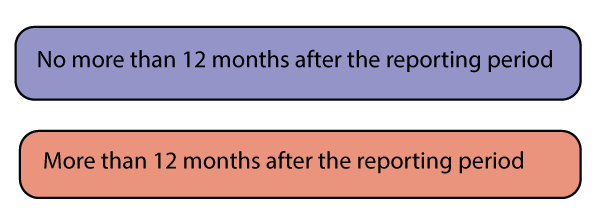Section 34B of the FRR requires the disclosure of maturity information in a note in the financial statements, showing asset and liability totals and line items broken down to amounts expected to be recovered or settled within 12 months or after 12 months from reporting date.
FRR section 34B – Disclosure of current and non-current assets and liabilitiesA reporting entity must disclose the following in a note in the financial statements for a reporting period:
|
Under paragraph 61 of AASB 101 Presentation of Financial Statements (AASB 101), entities are required to disclose for each asset and liability line item the amount expected to be received or paid:

AASB 101 only applies to tier 1 entities (see AASB 101 Appendix B). However, the requirements of section 34B of the FRR are consistent with those in paragraph 61 of AASB 101 and apply to both tier 1 and 2 reporting entities.
Under paragraph 60 of AASB 101, entities are also required to present current and non-current assets and liabilities as separate statement of financial position classifications, except when presentation based on liquidity is reliable and more relevant. When that exception applies, an entity is to present all assets and liabilities in order of liquidity. However, the requirements at paragraph 61 may differ from the current/non-current distinction included at paragraph 60 of AASB 101.

